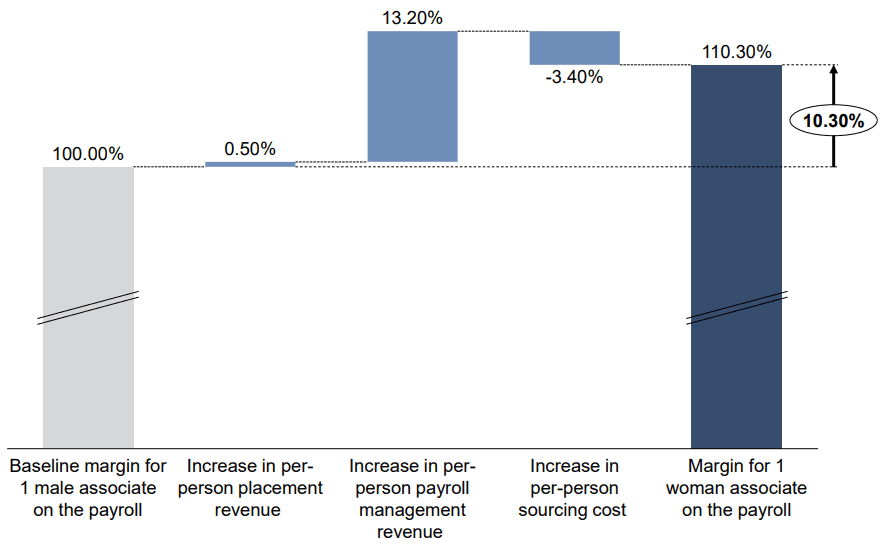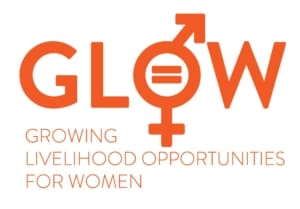Growing Livelihood Opportunities for Women
ROI of Gender Equity for Flexi-Staffing Companies
Hiring women in flexi-staffing companies can increase gross margin per person by 10.30%, as women’s lower attrition and longer tenures increase placement and payroll management revenues

How does hiring women benefit the gross margin of flexi-staffing (FS) companies?
FSG GLOW’s study of the data of 8,000 associates on the payrolls of a mid-sized FS company[1] shows that:
- Only 0.75% of women leave their jobs before completing 30 days, compared to 4.61% of men, translating to a 0.5% higher gross margin per person for staffing companies due to increased placement revenue[2]
- Women stay in their jobs longer, with an average tenure of 275 days compared to men’s 251 days, yielding a 13.2% higher profit margin for staffing companies due to increased payroll management revenue[3]
- Conservative assumption of a 50% higher sourcing cost for women compared to men, affects the profit margin only by a meagre -3.4%, resulting in the benefits of hiring more women far outweighing any additional costs[4]
The experience of leaders of FS companies echoes the business benefits of hiring women:
- “Our clients want a higher proportion of women associates because they have lower attrition and higher productivity.” – Chief Business Officer, Staffing company
- “Clients look for diversity in the organization. They see higher productivity, lower absenteeism, and attrition”. – National Sales Manager, Staffing company
How can FS companies measure the benefits of hiring women for their business?
FS companies can take 3 steps to track and share the business benefits of hiring women:
- Collect and analyse gender-disaggregated data on key performance metrics, such as those related to productivity and attendance
- Document case studies to highlight the impact of gender diversity on the staffing company (e.g., winning additional business from a client) and clients (e.g., improved retention and culture)
- Share the documented benefits internally and externally to build buy-in, with the frontline managers in the company and the wider industry, for hiring women
Regularly publishing the gender distribution and honestly acknowledging shortcomings and struggles in diversity efforts can demonstrate a genuine commitment to improvement, positively impacting the company’s credibility and reputation.[5]
To access the white paper on the ROI of gender diversity, click here >
[1] The flexi-staffing dataset comprises ~86% male and ~14% women associates across 70+ companies, mostly in sectors like manufacturing (automobiles, automobile ancillaries, precision machinery), logistics, and retail, across 26 states, from April to December in 2023
[2] The hiring fee paid to staffing vendors per person placed and retained for 30 days
[3] A percentage markup on the associate’s salary paid to the staffing company to process payrolls each month
[4] Assuming placement fee of INR 550 / payroll, sourcing cost of INR 300 for men and INR 450 for women (50% higher) and payroll management fee of 3.5% of salary
[5] Why Companies Should Disclose Their Lack of Progress on DEI by Evan Apfelbaum and Eileen Suh, Harvard Business Review

